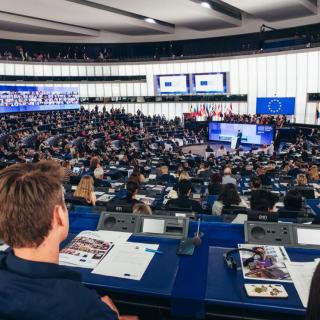Shaping the future: The EU’s long-term budget plan and how you can contribute

The European Commission has outlined key challenges and proposals for the upcoming Multiannual Financial Framework. This budget is vital for supporting various sectors and addressing recent crises. The Commission seeks public input to shape a simpler, more impactful budget, with consultations open ahead of a formal proposal in July 2025. The new budget will be implemented in January 2028, incorporating feedback from citizens through panels and online platforms.
An essential new Commission Communication highlights the major policy and budget challenges that will influence the next EU long-term budget. The long-term budget – known as the Multiannual Financial Framework – sets out the EU’s spending priorities for several years. It supports millions of people, farmers, researchers, businesses and regions across the EU and beyond. This budget is crucial for enhancing our quality of life. Recently, it played a vital role in helping us overcome both the pandemic and an energy crisis while safeguarding millions of jobs during lockdowns.
EU countries, businesses and citizens need to reconsider the way the EU budget works to make it fit for the future. To continue to support a free, democratic, secure, prosperous and competitive Europe, the long-term budget needs to be simpler, more impactful, and more targeted.
The new approach for a modern EU budget should include:
-
Developing a comprehensive plan for each country that outlines key reforms and investments in collaboration with national, regional, and local authorities,
-
Creating a European Competitiveness Fund to establish investment capacity supporting strategic sectors and essential technologies,
-
Providing more focused and strategic financing for external action,
-
Implementing additional measures to protect the rule of law.
The Commission invites all Europeans to express their views on the next budget and the policies it should support before the 6th of May 2025. A series of public consultations have begun and will be open for participation over the next 12 weeks. Links to these consultations can be found below.
Additionally, some 150 Europeans will have the opportunity to participate in a Citizens’ panel, where they can discuss and offer recommendations for the next EU budget. This discussion will be supported by an online platform that encourages everyone to join in.
Once agreed later this year, the next long-term budget will take effect in January 2028.
For more information
Public consultations
-
EU funding for civil protection, preparedness and response to crises
-
EU funding for the single market, and cooperation between national authorities




